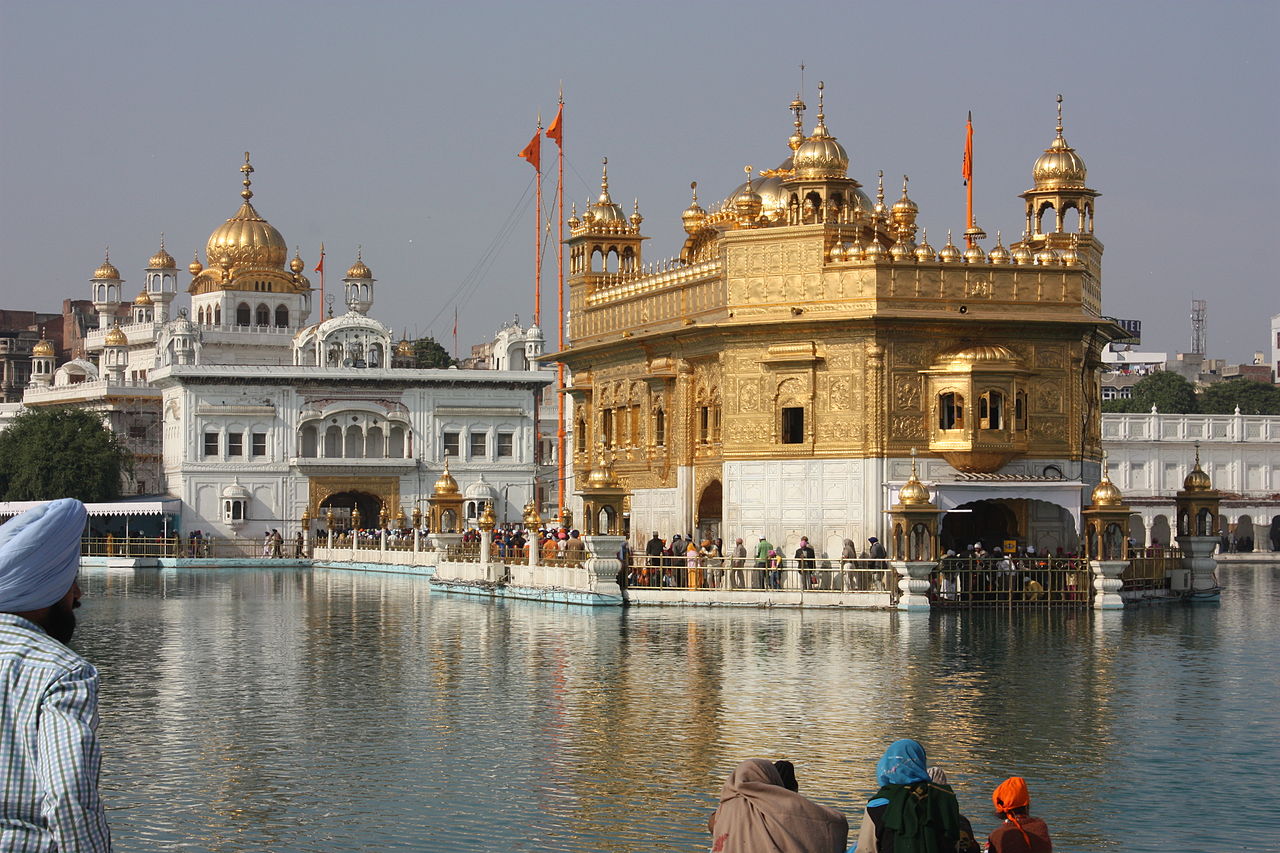Humans of Amritsar: A Rickshaw Puller’s Book About the City’s Poor Sikh Population Hits Home
"I started writing because I was in pain," says Richshaw Tey Chale Zindagi author Rajbir Singh.

Every morning Rajbir Singh rides his rickshaw through the streets of Amritsar, ferrying locals to their destination and tourists to the city’s most famous attraction — the Golden Temple. But he isn’t just a man offering a mode of transport; for the last 20 years, Rajbir has been recording his most memorable encounters with locals and travellers.
These memories constitute his first book, titled, Richshaw Tey Chale Zindagi, in which Rajbir narrates his myriad experiences with passengers.
 Golden Temple, Amritsar. Source: Wikimedia Commons
Golden Temple, Amritsar. Source: Wikimedia Commons
Priced at Rs 200, this book of short stories comprises 14 chapters and has been published locally. Rajbir had to quit his studies and take up a job as a rickshaw puller to sustain his family two decades ago when his father became ill, he told Indian Express. His stories, written in Punjabi, became a means for him to engage with his own trials and tribulations.
“I started writing because I was in pain,” he said. “The pain was due to the discrimination that is faced by several poor Sikhs like me. I was watching a television programme, in which rich and well-settled Sikhs were being honoured. It was then that I decided to write about those poor Sikhs who work as mechanics, rickshaw pullers, labourers to run their families. The teachings of Guru Nanak said there is nothing like rich Sikh or poor Sikh. I decided to spread this message through my writing and started sending articles to vernaculars.”
From offering to take a polio-afflicted girl to office for free to being offered ice-cream by tourist passengers, Rajbir Singh’s book captures everyday lives in Amritsar. A few copies of his book are also available in his rickshaw.
You might also like: Love to Read? The Story of This Fisherman-Turned-Bookstore Owner Will Make Your Day
An everyday do-gooder, the rickshaw puller has also set up a donation box in his vehicle. He puts part of his own earnings into the box and encourages his passengers as well. The collected amount is distributed among the poor and needy for any essentials they may require.
Like this story? Or have something to share? Write to us: [email protected], or connect with us on Facebook and Twitter.
NEW: Click here to get positive news on WhatsApp!
This story made me
-
97
-
121
-
89
-
167
Tell Us More
We bring stories straight from the heart of India, to inspire millions and create a wave of impact. Our positive movement is growing bigger everyday, and we would love for you to join it.
Please contribute whatever you can, every little penny helps our team in bringing you more stories that support dreams and spread hope.


















